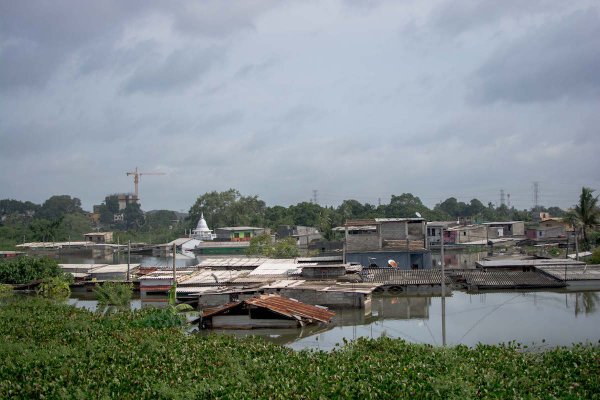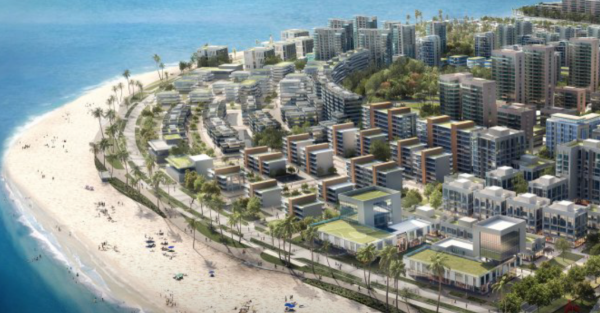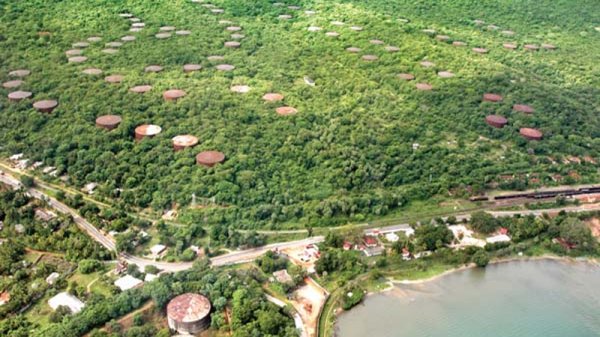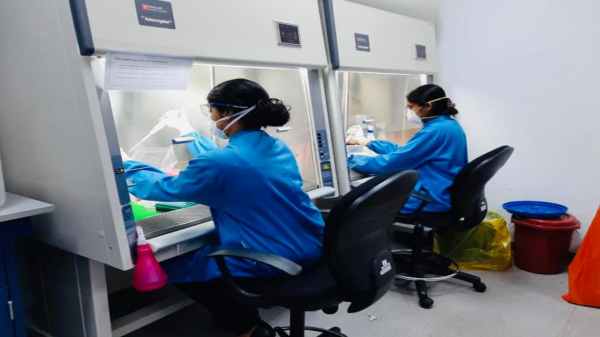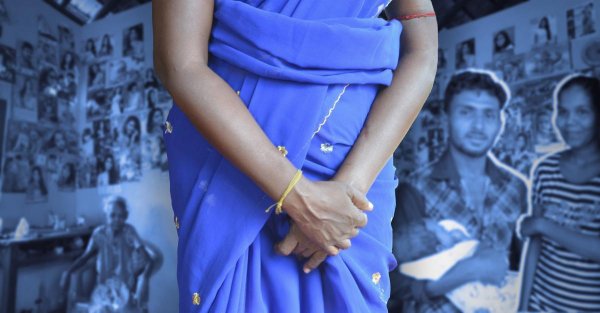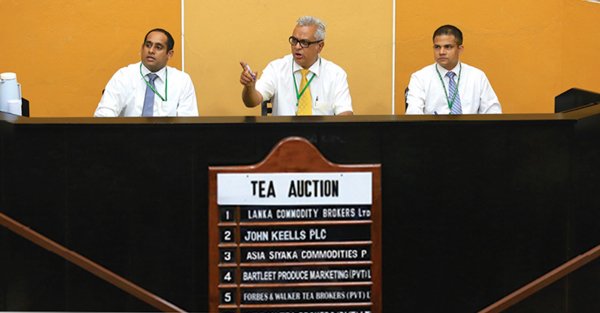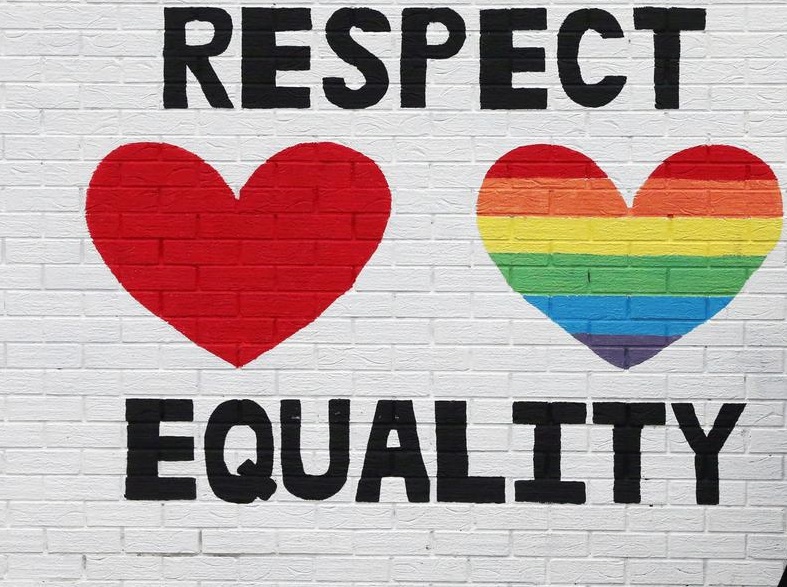
Last September, a young man was brutally murdered in Dambulla. He was found dead near the city’s central bus stand, with the weapons used for the act found in the vicinity. Mainstream media headlines screamed—not against the act itself, but about his identity. From transgender, to transvestite and cross-dresser, the headlines focused more on his gender, with the rest of the text highlighting how he would ‘loiter’ around town late at night.
The victim was a 34 year old who used to work on educating his community about STDs. This incident, however, highlights more than the insensitivity and sensationalist-discriminatory tactics adopted by the media; it also brings to focus the community itself, and the fact that for him and others like him belonging to the LGBTIQ community, even the law is discriminatory.
Sri Lankans have freedom of thought, conscience, and religion; freedom from torture, arbitrary arrest, punishment and detention; freedom of speech, assembly, and movement; the Right to Information, and, more relevant to this particular piece, the Right to Equality.
The Right to Equality outlines that all persons are equal before the law and are entitled to equal protection of the law.
But Are They?
Despite constitutionally having the Right to Equality, there are a few loopholes in this Article which either contradict, or supersede it. As a result, there are people who are deprived of basic rights, and whose autonomy as adults is completely ignored. The people who suffer the most are often forced into arranged marriages, or are deprived of marriage rights altogether. Many, especially in the gay and trans community, are ostracised in the public services sectors, are often harassed by the police, and are often discriminated.
Two main groups are affected as a result:
- The LGBTIQ community, and
- Women and Children.
The LGBTIQ Community
-
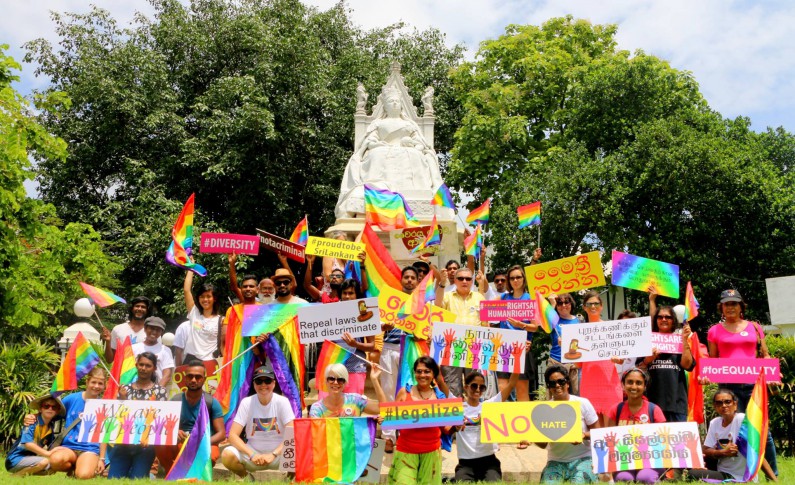
Sri Lanka’s LGBTIQ community’s presence is merely tolerated in most cases. However, there are several groups who work closely with the community and the rest of society to raise awareness about their issues and lifestyles. Image courtesy, Facebook/equal grounds
The Lesbian, Gay, Bi, Trans, Intersex, and Queer communities occupy a grey area where identity and rights are concerned. While there’s nothing in the constitution or penal code which specifically targets them, there are vague references under the Vagrants’ Ordinance which states that anyone found guilty of ‘gross indecency’ could be produced before courts. The laws we currently have were influenced by British colonisation, and are outdated as a result. Although amending this and decriminalising homosexuality could be part of the solution, the cabinet refused to do so just earlier this year.
So while homosexuality was decriminalised in the UK 50 years ago, Sri Lanka is yet to follow suit, and those caught in homosexual acts can be prosecuted. Sections 365 and 365A of the Penal Code criminalises same-sex relationships between consenting adults. In other words, marriages between the gay community aren’t recognised either, depriving them of the Right to Equality.
Add to this, the trans community faces immense difficulties with regard to discrimination: both in terms of finding adequate medical care within Sri Lanka, and being ostracised and victimised by society and authorities—our report last year highlighted the difficulties one has to undergo for a gender reassignment surgery and then obtaining IDs and necessary medical care.
Women and Children
At 92%, Sri Lanka has one of the highest literacy rates in the world, and the best in South Asia. Technically, this means that we have a sound education system in place, which in turn leads to better quality of life for its citizens. Another thing we can be proud of is having elected the world’s first Prime Minister, an act which implies that women are held in high esteem here.
This may be true, except for a few hard-to-overlook instances.
-
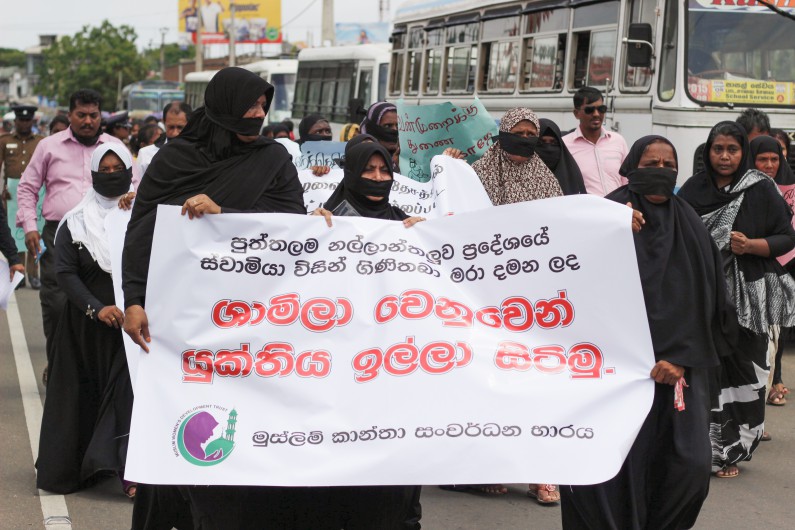
Women in the East demanding justice for a victim of domestic abuse and forced marriage. Photo by Roar Media/Shiran Illanperuma
One of the biggest debates that Sri Lanka’s civil society has been involved with over the last few decades concerns the Muslim Marriage and Divorce Act (MMDA). While the Constitution protects people, it doesn’t actually reign supreme. This might sound strange, but there is a clause within the Constitution itself which allows for personal laws to be prioritised instead.
Article 16 (1) states that “All existing written law and unwritten law shall be valid and operative notwithstanding any inconsistency with the preceding provisions of this Chapter.” Ergo, the MMDA is able to supercede the Constitution when or if the two clash.
The two main issues within the Act are that Muslim women aren’t allowed to sign their own marriage contract, requiring a male guardian to sign on their behalf; and that it doesn’t stipulate a minimum age of marriage, enabling child marriages to take place—an act which is otherwise illegal, as the minimum age of marriage is 18. The only age mentioned is with reference to a Quazi’s (magistrate of the Shariʿa court) approval being needed if the person marrying is below 12 years old.
Similarly, the Kandyan Marriage and Divorce Act is also conflicting. It first states that marriages wouldn’t be valid unless both parties are of the lawful age to marry, whilst also highlighting that the consent of a competent authority is required for the marriage of a minor.
While only 2% of marriages in Sri Lanka are child marriages, most of them are due to loopholes and forced marriages. For that matter, there has been a growth in the percentage of child marriages amongst Muslim children in the Eastern Province: from 14% to 22%.
What’s The Status Quo?
Earlier this year, the Cabinet refused to decriminalise homosexuality. The provision to do so was in a draft of the Human Rights Action Plan, and was in favour of ending discrimination based on sexual orientation.
Women’s right activists are fighting for amendments to be worked into the MMDA, pointing out the numerous cases of domestic abuse in forced underage marriages. In July 2009, a committee tasked with making recommendations to amend the MMDA was appointed by the Former Justice Minister, Milinda Moragoda. Despite the passage of nearly a decade, the report is yet to see the light of day.
Cover Image: sabrangindia.in


